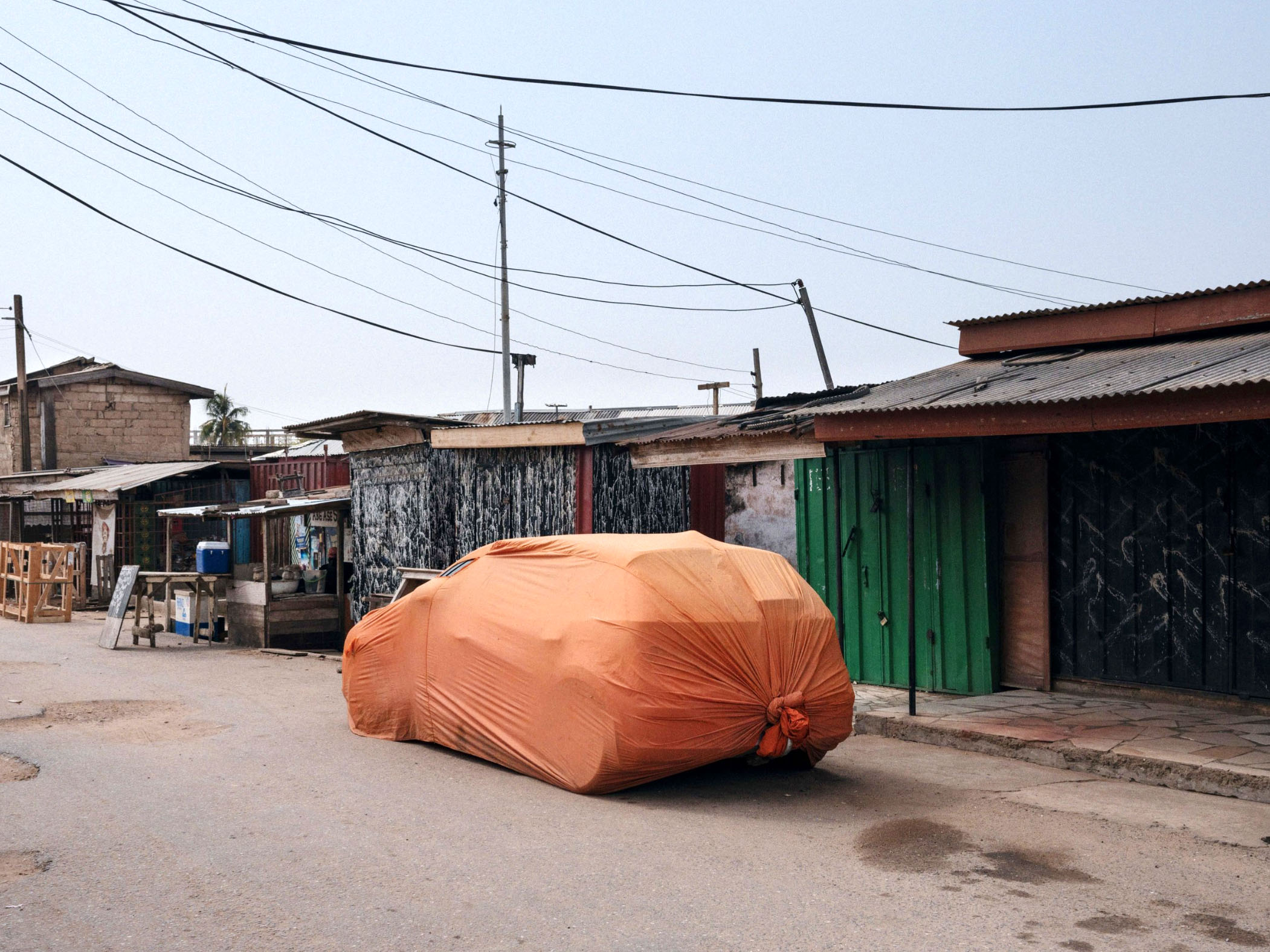Ɛhyɛn City, like a West African alter ego of America’s Motor City, where rather than churning out brand new cars from automated assembly lines, vehicles destined for the scrap heap are given a new lease of life thanks to the ingenuity of a dense network of garage owners, mechanics, importers, and dealers. Here, necessity replaces abundance: actions dictated by a lack of resources extend the life of cars far beyond what Western economies based on disposability would allow. This form of recycling, far from any formal ecological program, nevertheless outlines a sustainable practice: with limited resources, limited energy, and relentless inventiveness, these artisans delay obsolescence through the strength of their hands.
Their workshops produce composite vehicles, assembled from heterogeneous parts, reminiscent of the grand gestures of New Realism or Arte Povera. Like César’s compressions or Duchamp’s assemblages, these “frankencars” question the boundary between repair and creation, between necessity and art. Although they are the result of a context of deprivation, they reveal a creative and human dimension that is often absent from our consumer society: making things last rather than throwing them away, transforming rather than replacing.
